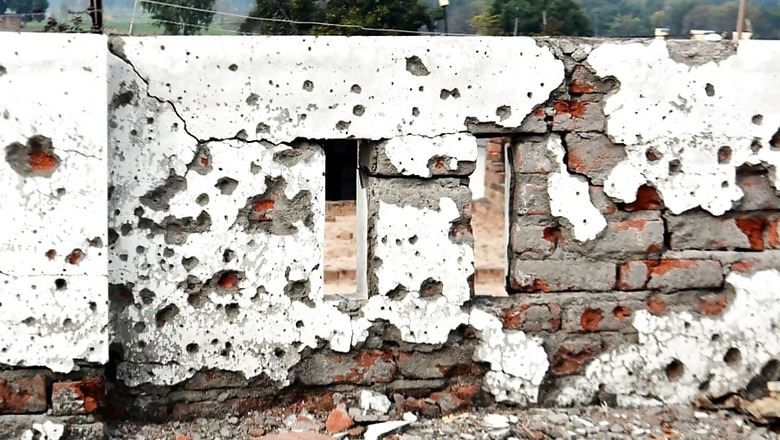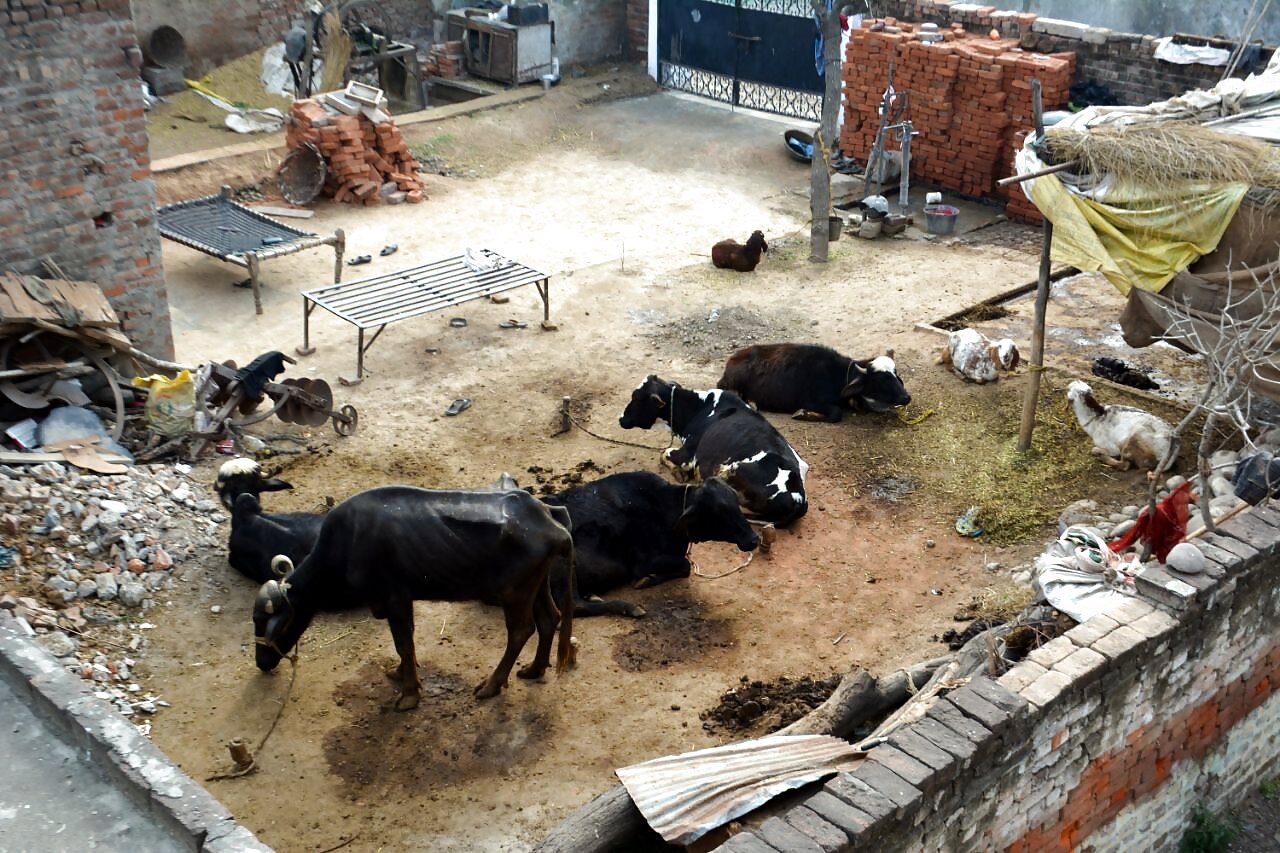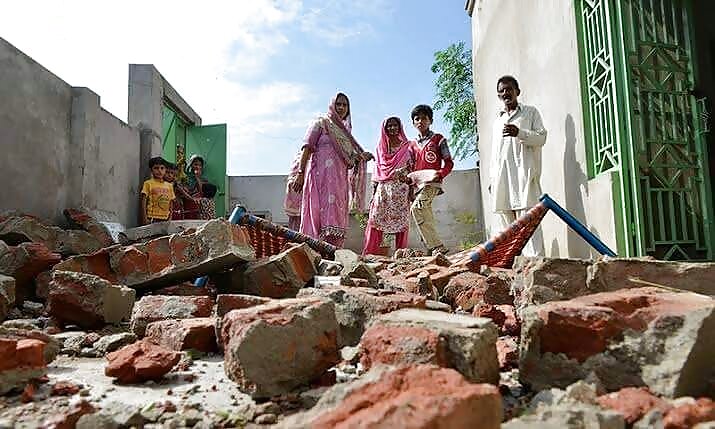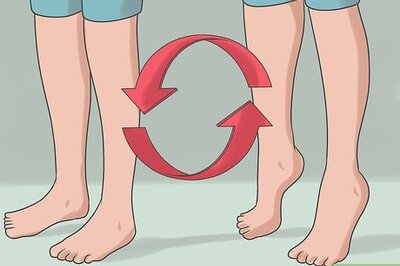
views
R S Pura, Jammu: The farmers of villages in RS Pura and Suchetgarh sectors - known for growing the fabled basmati - are living in fear due to the roaring guns on both sides of the restive international border.
This sowing season, they are fearful of stepping on to their fields, lest unexploded shells that are littered around might go off and kill or maim them. The scraps have dangerously peppered their houses, schools, cattle-sheds, kitchen gardens, coops, sheds, tractors and vehicles.
Kortana and Satwali and a dozen neighbouring villages in RS Pura are surrounded on three sides by Pakistan. The shells have landed left, right and centre here.
When the pounding stops for a while here, it starts in Viddipur, Satwali, Gulabgarh, Jora farms and Abdullian, all villages near the international border. There has been no respite in the last three days.
The fertile sector alone has seen five people, including two soldiers, die in last four days. In all, 12 people, including 5 soldiers, have lost their lives in the fresh bout of firing along IB and LoC. More than 50 civilians have been wounded, an indication that populated areas are being targeted.
Around 40,000 civilians have already been rendered homeless and many have been transferred to temporary shelters set up by the government.
Vacant schools, marriage halls, worship places, Panchayat ghars and government buildings are housing hundreds of displaced. Some 350 schools close to IB and LoC have been shut and residents have been advised not to venture out in open. Many have been taken out to safety along with their cattle.
In Viddipur, Darshan Lal, 59, a farmer and son of a former soldier is livid. His family, he says, escaped death on many occasions. A few mortar shells fell near his house but luckily the compound wall took most of the brunt. He says he wasn't this lucky two years back when a shell smashed every door and window of his house.
His house shows telltale sign of what exploded shells can do and the thin line between life and death for people here. The car he had bought for his son resembles junk.
Its roof has several holes, windscreen is shattered and deflated tyres have sunk in a cement path. His cattle lie on the other side, tethered closely to a compound wall, apparently to avoid a mortar projectile.

The slab of his house has a gaping hole on one side. Metal pieces of mortar has chipped the plaster of the house wall, somewhat similar to a naughty kid sprinkling ink on a paper. "I am staying in this house because my late father built it so lovingly. Otherwise looking at what has happened these three days, I would have fled from here," he said, pointing to his father's picture mounted on a wall.
"He fought wars in Europe and East Asia and towards the fag end of his career constructed this home. I am emotionally attached to it. That keeps me here even in these dangerous times," he said.
He regretted government was not paying him any compensation for the damages. "I have moved court. What can I do?" he asked.
Three kilometres away in Gulabgarh village, Anshul, a student, says he hasn't been to school for last three days. "The BSF guards the border and are not allowing us to move out. In our neighbouring Satwali village, a boy was killed by a mortar bomb."
Many border villages that News 18 toured seemed half-empty. While only a few men stayed back in villages to feed cattle, the rest of the family members shifted to schools and government buildings serving as night shelter homes to escape the firing and shelling.

The government informed the assembly that close to 40,000 villagers abandoned their homes to escape Pakistani pounding. Around 5,000 cattle also were taken out of harm's way.
Villagers in Arnia, Kanachak, Ramgarh and parts of Pargwal, which are otherwise bustling with farming activity, too are partly deserted.
The residents say Pakistani shelling has been more intense this time and sound of mortar shells are heard for kilometres together. The situation is same in Samba and Hiranagar. The Border Security Force jawans are seen taking positions and giving it back to the Pakistani rangers.
Last week, BSF DG reportedly told his men that they must give a befitting reply to Pakistan.
Jitendra Singh, Minister of sate for PMO, toured the affected areas and met the wounded. He praised residents for their resilience and bravery and said they have always fought shoulder to shoulder with the soldiers. The border dwellers said more underground bunkers need to be built on the borders.
"Our bunker is small and it accommodates only 25 people. We are 400 souls living here and when shells start to rain we find it difficult to slip into it," says Ganshuram, a resident of Viddipur.
He said bunkers need to be constructed closer to their homes. "Bullets and mortars don't give you time to escape. Often people have been killed or injured while running towards the bunkers," he says.
Residents said government should live to its promise of sparing five marla land to each family beyond the firing range so that they can build houses and easily relocate in times of face-off between the soldiers.
In Jora farms, scores of mud and thatch hutments called Kullas are severely damaged and bovines killed in heavy mortar shelling. This Gujjar hamlet near the barricaded zero line was affected few years back when four people were killed in shelling.
"The firing and shelling was so heavy that we could not move for hours on Friday morning. Lot of our kullas have fallen down and we have no idea what has happened to our families," Wali Mohammad told News 18 while helping his elder cousin Bashiruddin for a X-Ray scan of lower leg in R S Pura hospital. Bashir’s left leg was bandaged.
"Firing was so heavy that No one came to rescue us. We were lying there for four hours. I literally threw him in my vehicle and brought him to the hospital. God knows what has happened back home," a furious Wali said.




















Comments
0 comment